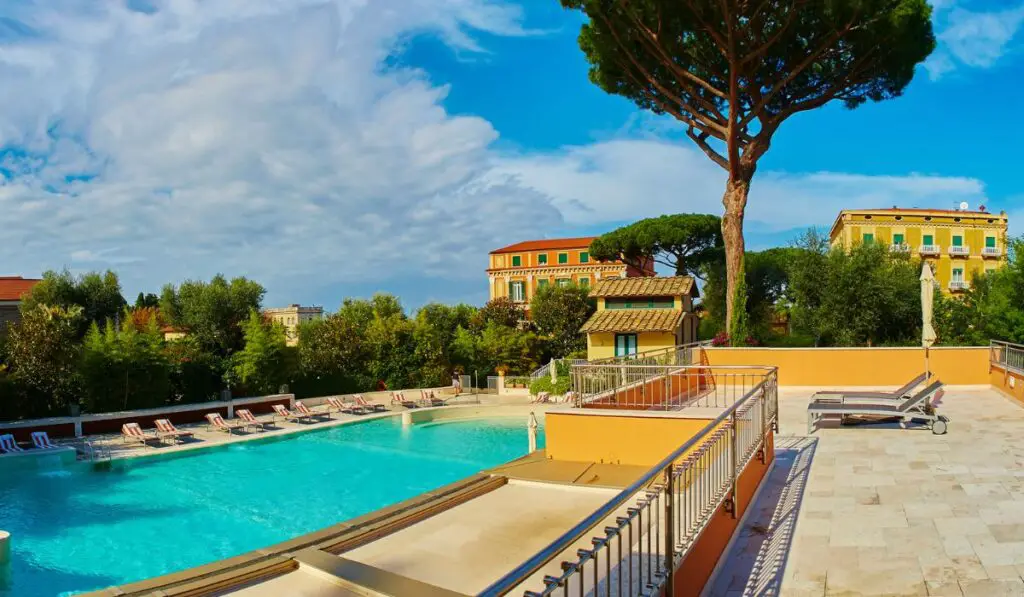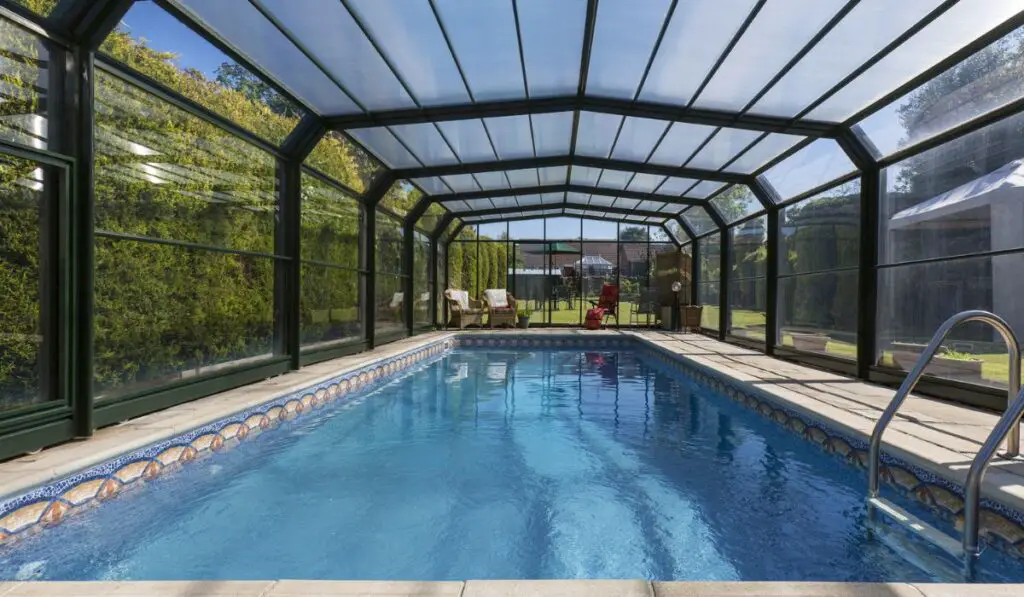Public pools generally open during peak summer months when the temperature is perfect for enjoying a cooling dip. But pools don’t have to be limited to the summer season. Heated or temperature-controlled pools make it possible to extend your pool season and enjoy swimming year-round, no matter what the weather is like outside. But is it normal for a public pool to be heated?
Finding a heated outdoor public pool is pretty uncommon because it’s an expensive amenity to maintain. These types of pools are usually found at high-end resorts, hotel chains, or country clubs that have indoor facilities and can afford to operate and heat a pool year-round.
Heating a pool requires a lot of energy, which can be costly. As a result, most public pools are unheated. This doesn’t mean you can’t find a heated public pool, but they may be few and far between. Let’s find out what type of pools are temperature controlled and how you can find a heated pool near you.
Are Public Pools Heated?

Most public pools aren’t heated because it’s quite expensive to heat a pool, and not everyone enjoys swimming in winters. Most people prefer to swim when the weather is hot, so it doesn’t make sense to keep a heated pool open all year when a few people will only use it.
There are, however, some public pools that are heated, especially indoor pools. Indoor pools retain the temperatures better, so it’s more practical to heat them. Even then, you’re more likely to find a heated pool at high-end country clubs, resorts, or hotel chains that can afford the maintenance and energy costs.
Other than these, pools made for competitive sports are also temperature controlled to keep them available for year-round training.
Overall, it’s not very common for public pools to be heated. Outdoor heated pools are even rarer and are mostly found in regions where the climate is too cold for people to swim outdoors comfortably. If you’re looking for a heated pool, your best bet is to check at indoor venues or fancy resorts.
Indoor vs Outdoor Pools: Which Are More Likely to Be Heated?
Indoor pools are more likely to be heated than outdoor pools for several reasons. Indoor pools are not subject to the whims of the weather. The enclosed space allows for better temperature control, making it easier and cheaper to maintain a consistent water temperature.
Then there’s the issue of cost. Indoor pools are typically found at expensive clubs or resorts, which have resources to heat their pool. On the other hand, outdoor pools are typically part of public parks or recreation centers that are usually owned by municipalities, which have to be mindful of their spending.
As a result, it’s far less likely they have the hefty budget required to heat a massive outdoor pool.
Plus, an outdoor pool in the middle of winter is not a very appealing prospect, but an indoor pool can be a great way to beat the cold and get some exercise. People are also more likely to use an indoor pool if they want to go swimming in the winter.
What is the Average Temperature of a Public Pool?
The average temperature of a public pool is approximately 77-86°F (25-31°C). For the most part, this is a safe and pleasant temperature for swimming, and bigger pools stay between this range without any temperature control.
On the other hand, smaller pools are more affected by the weather and may require heating or cooling to stay in the range even in the regular months of May to September.
If a public pool is also used for commencement to competitive swimming, then the temperature range is kept narrow according to the USA Swimming rules. These pools must maintain a temperature of 77-82°F (25-28°C).
How Much Does It Cost to Heat a Public Pool?
Heating a body of water as large as a public pool is not cheap. The average cost to heat an indoor pool is between $700 and $800 annually; it further jumps to over $1,400 for an outdoor pool. But this number will vary depending on the pool size, the temperature you want to maintain, and the type of heating system you use.
If the outdoor temperature isn’t too bad, you’d need less energy to heat the pool and vice versa. The same goes for the difference between an indoor and outdoor pool. As you keep increasing the temperature, the energy required to maintain that temperature also increases.
Whatever the circumstances, pool heating isn’t cheap, and the industry is still looking for innovative ways to make it more affordable. Recent developments include solar pool covers, heat pumps, and other energy-efficient ways to heat a pool.
There are also talks of heat exchange systems, which use the heat released from sources like data centers or sewers to heat a pool. But the large-scale implementation of these technologies is still a ways off.
Tips For Finding Heated Pools Near You

- Check indoor venues like fitness clubs or community centers. These places are more likely to have heated pools because they want to offer their services year-round.
- If you have a particular place in mind, call them and ask if their pool is heated.
- Research using online resources. There are a few websites that track pools around the country.
- Visit a resort. If you’re looking for a luxurious experience, many resorts have heated outdoor pools open to the public.
- Look for a swimming training center in your area. These places usually have heated pools to meet their swimmers’ needs.
